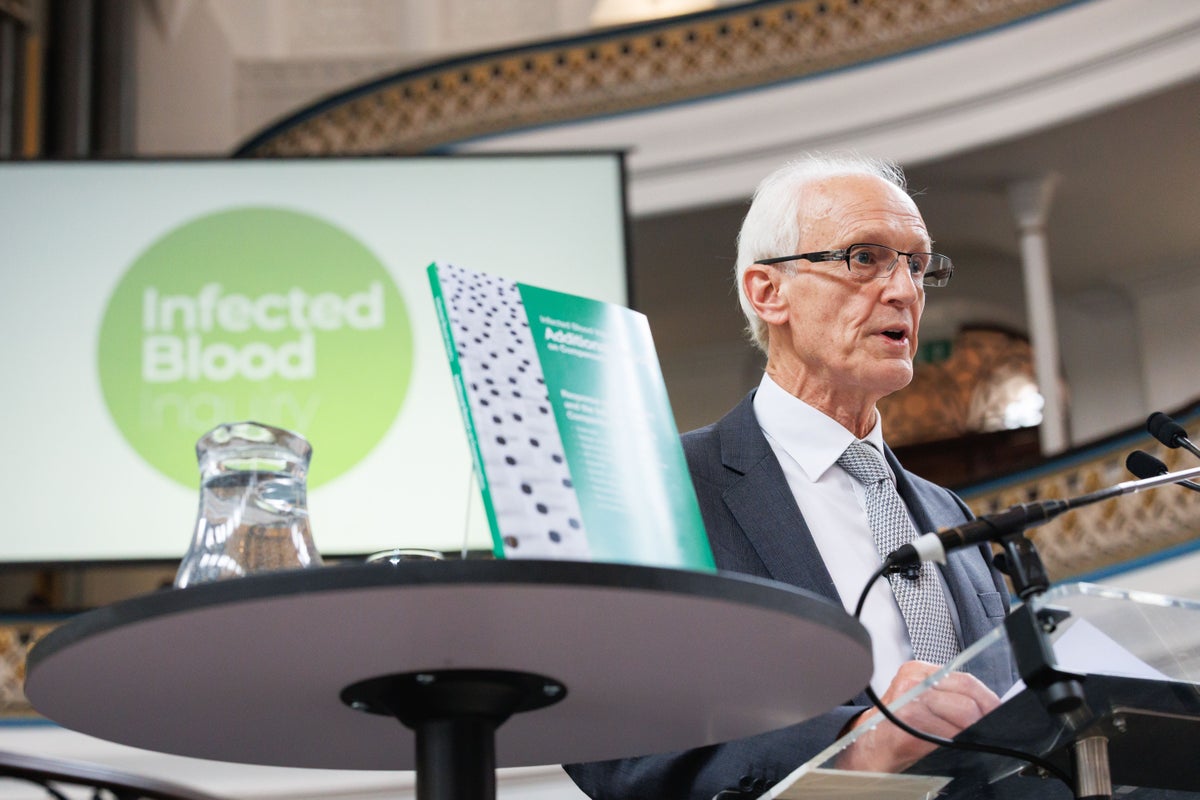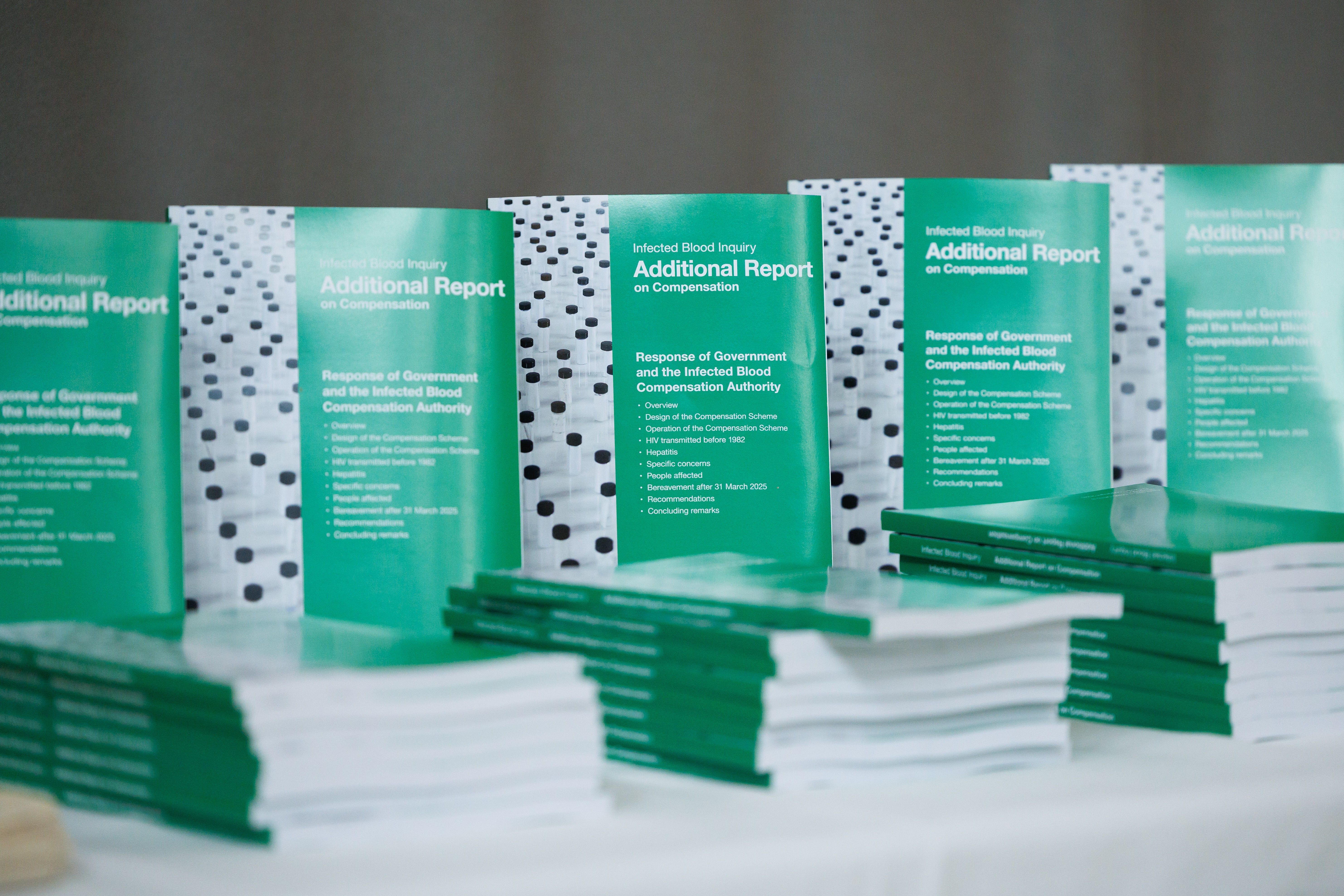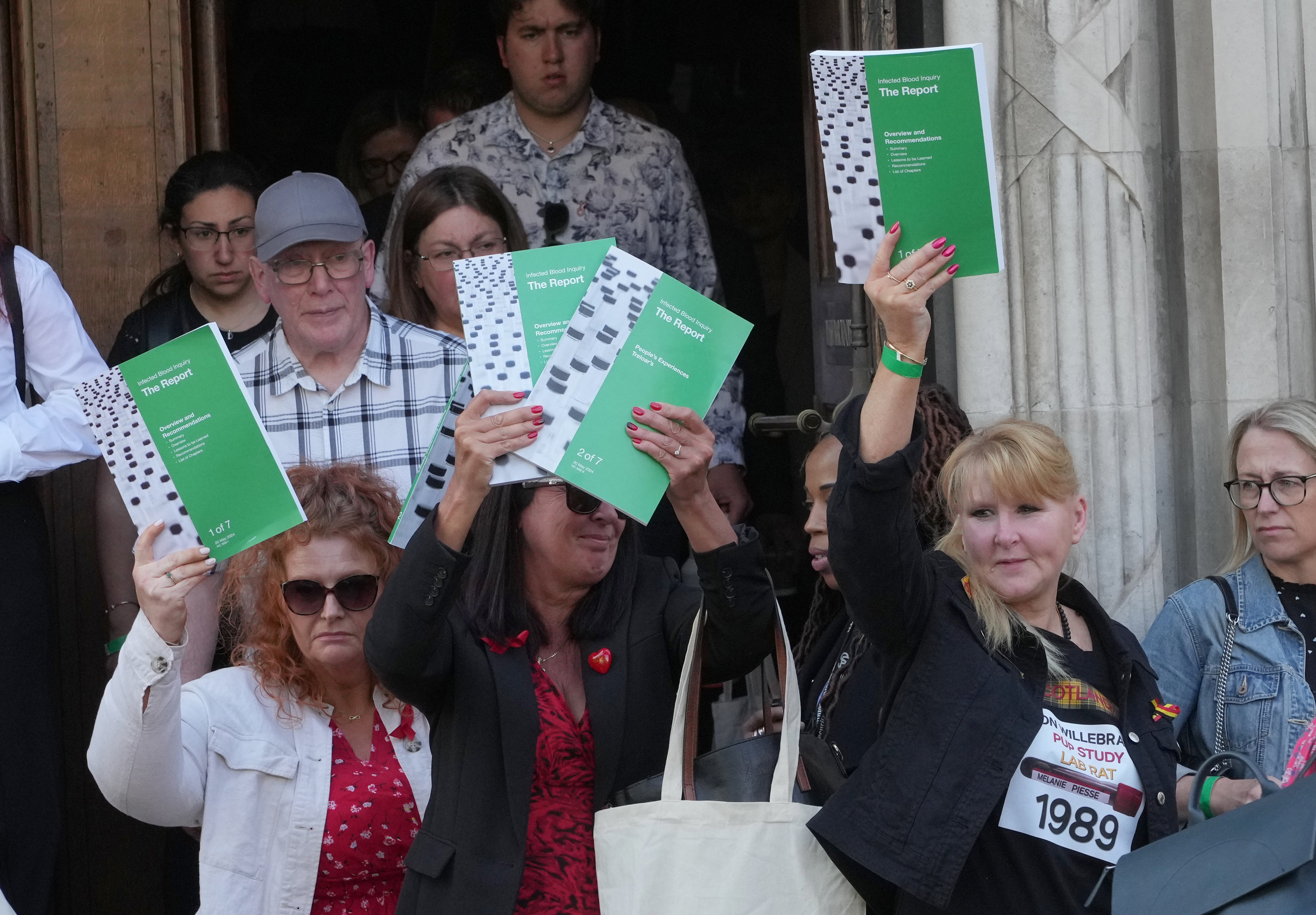
The compensation scheme for the infected blood scandal has “perpetuated” the harm of victims with key decisions about the scheme made “behind closed doors”, according to a report.
The Infected Blood Inquiry warned that there has been a “repetition of the mistakes of the past” and that people have been “harmed yet further” since the scheme was established.
Sir Brian Langstaff, chairman of the probe, said that the number of people who have been compensated to date is “profoundly unsatisfactory” as he called for “faster and fairer” compensation for victims.
The latest report of the inquiry concludes:
– There was a “missed opportunity” to consult with people affected by the scandal.
– There has been a “repetition of mistakes in the past” in the way both the Conservative and Labour governments have responded.
– Trust in the Infected Blood Compensation Authority (IBCA) has been “lost” by many members of the infected blood community.
– People impacted by the scandal have expressed a “grave concern” over the delay in compensation and a “lack” of clear timescales as to when it will be delivered.
– The report raises concerns about how the regulations underpinning the compensation authority have created a “liability window” which mean people infected with HIV with contaminated blood or blood products before 1982 will not be compensated which is “illogical and profoundly unjust”.
– The impacts of a hepatitis infection are not being “fully recognised” in the compensation scheme, including the impact of early treatment for the virus which has been linked to severe side-effects.

Campaign group Tainted Blood has estimated that at least 100 people have died while waiting for compensation since the main report was published last year.
Writing in the 210-page report, Sir Brian said: “Trust has not yet been regained but instead has been further damaged and that people have been harmed yet further by the way in which they have been treated.”
Speaking to people impacted by the scandal at an event in central London, Sir Brian said that “delay creates an injustice all of its own”.
He described how one man spent his dying days applying for compensation but died before he received it.
“One man spent his last days applying for compensation but died before the process was complete.
“His family do not know when they will receive the recognition that should have been his.
“A mother in her 80s, whose two sons and husband were infected at the same hospital, died before she was even allowed to start the process.
“Many, many fear they will not live to see the recognition which compensation brings.”
The report details how another victim described how “it feels as if we are waiting to die, in limbo, unable to make any progress in our lives”.
The Inquiry’s Additional Report on Compensation is now published on the Inquiry website.
— Infected Blood Inquiry (@bloodinquiry) July 9, 2025
Access the Report here: https://t.co/CbQTGm28Ev
He described how victims of the scandal told him how the compensation scheme had left them feeling “desperate and powerless”.
Sir Brian highlighted how his first report on compensation was published in 2023 yet some affected people have been told that they may not receive compensation until 2029.
He said that it was “inexplicable” and “unthinkable” for the compensation scheme to be devised without input from the infected blood community.
Sir Brian said that “time is not on anyone’s side” as he made a series of recommendations to improve the compensation scheme.
“Once again decisions have been made behind closed doors leading to obvious injustices,” he said.
“The UK Government has known for years that compensation for thousands of people was inevitable and had identified many of those who should have it – but only 460 have received compensation so far and many, many more have not even been allowed to begin the process.
“We are calling for compensation to be faster, and more than that, fairer.”

More than 30,000 people in the UK were infected with HIV and hepatitis C after they were given contaminated blood and blood products between the 1970s and early 1990s.
And more than 3,000 people have died as a result, and survivors are living with life-long health implications.
The Infected Blood Inquiry published its main report on the scandal in May last year, and a compensation scheme was announced a day later.
But in the same week a general election was called and officials from the IBCA have described how in the early days of the organisation it consisted of two men, a laptop and a phone.
Some £11.8 billion has been allocated to compensate victims, administered by the IBCA.
As of July 1, some 2,043 people have been asked to make a claim, and 460 people have had their compensation paid totalling more than £326 million, according to IBCA figures.
We’ve published our latest compensation figures today - these are accurate as of 1 July 2025.
— Infected Blood Compensation Authority (@IBCA_UK) July 3, 2025
We will continue to publish updated figures every two weeks.
Click the link to see the latest figures: https://t.co/CISQSHwRQ0 pic.twitter.com/KRWbpXunBg
Cabinet Office minister Nick Thomas-Symonds said in a written ministerial statement: “The Government is committed to reflecting carefully on this report to ensure that people who are both infected and affected are properly supported in their search for justice for this devastating scandal and to receive compensation they are due.
“The Government will now quickly work through these recommendations and work closely with the Infected Blood Compensation Authority to understand the delivery implications of any policy changes to the Scheme.
“It is our firm commitment, as we reflect on the inquiry’s work, to continue to take steps and support the Infected Blood Compensation Authority to deliver compensation to victims of this scandal as quickly as possible.”
David Foley, chief executive of the IBCA, said that the organisation is “is already delivering on many of the recommendations” made by Sir Brian.
He added: “There are a number of significant proposals in the report which might, if the Government accepts them, change the way in which IBCA can build its service.
“These new recommendations will help us to further shape the scheme, for example we may change the order and speed at which we can make compensation payments.
“We are committed to paying compensation to each and every person who is eligible, as quickly as we can.”
Welfare reforms risk leaving stain on Labour, MP warns
Compensation scheme for blood scandal ‘stripped victims of their dignity’
Government makes deal with Google to provide free tech for UK public services
Police Scotland making preparations for Trump visit ‘later this month’
Hugh Grant and the Queen among famous faces in crowd during day 10 of Wimbledon







